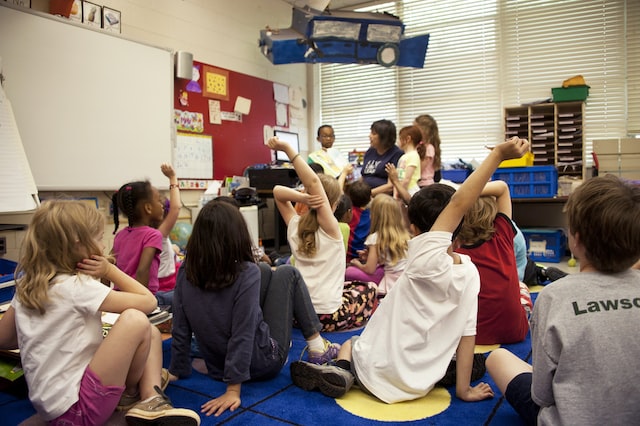There are a lot of debates out there about whether private school kids get better grades than public school kids. Some people say that it’s because private schools have more resources, while others argue that it’s because private schools can be more selective in their admissions process. So what’s the truth? Let’s take a look at the data to find out.
The average class size for private schools is much smaller than public schools
The average class size for private school students is tremendously smaller than their public school counterparts, which can be beneficial to the academic success of their students. Private school classes typically range from 10-20 individuals, while public schools commonly have more than double that number. By having fewer classmates, private school students often receive more personalized attention and support from their teacher, allowing them to be better understood and given resources to help them achieve success in their studies. The smaller environment also creates a closer bond between the teachers and pupils, facilitating more productive discussions and genuine connections. Ultimately, the smaller class size can give private school children a sense of safety and comfort as they navigate through their educational journey.
Private school teachers are better qualified and have more experience
Private school teachers generally have a wealth of experience and background that makes them highly qualified for their roles in the classroom. Many of these instructors hold advanced degrees and certifications, providing students with access to enhanced educational opportunities. Private schools also often offer competitive salaries that help in attracting highly qualified teachers and retaining them as part of their staff. In addition, private schools may require ongoing professional development, allowing instructors to stay up-to-date on the latest advances in teaching methods. Overall, this higher level of qualification helps these establishments deliver exceptional educational experiences to their students.
Private schools offer a more challenging curriculum
Private schools may come with a hefty price tag, but they also offer a more rigorous academic curriculum that can be helpful in preparing students for college. Teachers in private schools usually have more experience and credentials than those in public schools, giving them the ability to design classes that are both demanding and interesting. Private schools also tend to have smaller class sizes, which is beneficial for students since it allows teachers to give each student the individual attention they need to stay on track. This personalized learning environment encourages higher levels of achievement, which makes the educational experience more enriching than what would be found at a traditional public school.
Private school students have parents who are more involved in their education
Private school students tend to benefit from having parents who are more engaged in their education, as this provides an attentive support system that helps ensure academic success. These parents often interpret their involvement in their child’s learning experience as a way to invest in their long-term futures, and are willing to take on financial or logistical burdens associated with private schooling. As such, private school students can rely on the support and encouragement of their family members with education-related matters – from assistance with class assignments to preparing for college applications – which can have far reaching benefits in terms of literacy and future success.
Private school students are held to higher standards by their parents and teachers
Private school students are held to much higher standards than those in public schools not only by their parents but also by their teachers. Private school parents expect nothing less than excellence from their children and like to see them reach their goals both academically and beyond in the extracurricular world. For this reason, private schools have the reputation of providing a rigorous and demanding education that many students thrive under. Teachers push students hard while also providing the support they need to excel both on assessments as well as in gaining knowledge. These expectations lead to higher marks and often encourage a competitive environment amongst private school students, keeping them motivated and challenged every day.
When it comes to education, private schools offer numerous advantages over public schools. Perhaps the most significant difference is class size – on average, private school classes have fewer students than public school classes, which allows teachers to give each student more individualized attention. In addition, private school teachers are typically better qualified and have more experience than their public school counterparts. Private schools also tend to offer a more challenging curriculum than public schools; as a result, private school students often outperform their peers on standardized tests. Finally, private school students’ parents tend to be more involved in their children’s education; this increased involvement leads to higher accountability for both students and teachers. If you’re looking for a high-quality education for your child, aprivate school may be the best option.
